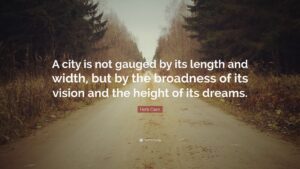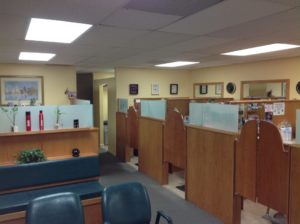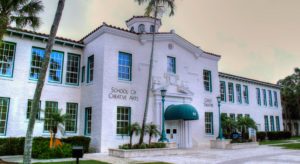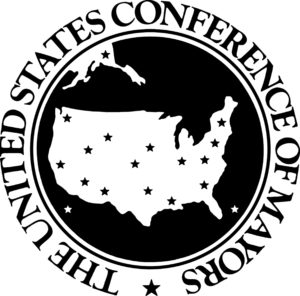
Watching the ceremonies marking the 80th anniversary of D-Day was a deeply moving experience.
To see the last members of the Greatest Generation back in Normandy fills your heart with pride and gratitude.
This level of service and sacrifice defies description. Thank goodness for these people. We are a free people because of their heroism.
Over the weekened, I listened to an interview about D-Day with retired four-star Admiral James Stravridis, the former Supreme Allied Commander of NATO.
Adm. Stravridis is a remarkable man and has a unique way of explaining complex global affairs.
But on this day, he talked about why it’s important to thank people who serve.
“Those of us in the military really appreciate when people say, ‘thank you for your service’,” he said. “It’s meaningful. But we should also thank everyone who serves. That includes teachers, police, firefighters, and others who serve the community.”
That’s a simple and reasonable request. But a powerful one too.
I thought about Admiral Stravridis’ words and realized that we don’t often take the time to say thank you to those who serve.
There’s a crisis in law enforcement–an inability to recruit– in large part because people feel police work is a thankless job.
Same with teaching and a whole host of fields ranging from nursing and the fire service to government employees who are often viciously maligned and threatened.
It’s a doom loop and it’s hurtful. Criticism and condemnation–especially if it’s unwarranted and mean-spirited leave lasting scars.
People who go into public service are not seeking to get rich. You simply can’t get rich in these fields. They are searching for something deeper, they want to make a difference, they long to serve, they want to help and therefore they find “riches” in ways that can’t be measured.
But even the biggest hearts have a limit. If the costs outweigh the benefits, people will find other ways to spend their years.
We humans have a need to feel respected. We want to be seen and appreciated. It costs us nothing to do so.
I’ve been blessed to know many public servants. Teachers, police officers, firefighters, veterans, those that work for nonprofits and a range of others folks who serve us in all sorts of ways.
I lived next door to two boys who grew up to be Marines. I saw them go from little guys playing video games in my house to young men willing to die for their country—just like the D-Day veterans. That level of commitment is to be celebrated, venerated, spoken about, and honored.
That celebration, that respect starts right here at home.
When I see officers or firefighters around town—I stop to say thank you and to share my wish that they stay safe. It’s a dangerous world that they inhabit every time they step out the door.
I also think our thanks and appreciation should extend—like Admiral Stravridis suggests—to all who serve.
As such, we have a teachable moment in Delray Beach right now.
I don’t watch City Commission meetings. But after receiving a bunch of texts about the June 4 meeting, I decided to put it on as background noise while I worked.
Commissioner Rob Long started a conversation about the opaque process to find a group to help get Old School Square’s theater and classrooms going again. Commissioner Long objected to an allegation made at another meeting that the nonprofit that created Old School Square and did a damn good job for decades was under FBI investigation.
It’s just not true.
The truth is there has been no coherent process to replace the nonprofit that built Old School Square and nurtured it for 32 years. It is just a muddled mess, which has compounded the poor and expensive decision to boot the group without a plan.
What transpired was a shrill and embarrassing discussion that further sullied the reputations of valued community servants who gave their time, talent, and treasure to this city for 30 plus years. These people really took a beating, it was unnecessary and undeserving. A majority of the commission didn’t look good in adminstering the beat down. We can do better.
But the point here is not to re-litigate the Old School Square mess. It’s to point out, that nowhere in this disaster have we found it in our hearts to slow down, stop for a moment, and give thanks to community volunteers.
Instead, we have treated some of our best citizens as if they are criminals. They are not.
Nobody is perfect, and mistakes were made and owned, despite what is being said by people who ought to know better. But when people talk past each other we don’t get anything but hurt.
Mercifully, what’s left of the Old School Square nonprofit wrote a letter the next day to the City Manager saying no more. Inexplicably, the manager had written to the group asking if they still had interest in providing those missing classes and theatre programming. The letter was a joke. Not a funny one either.
But the larger point is we have spent years denigrating, disrespecting, and spreading lies about a group that has brought immeasurable benefits to our town.
The only acknowledgment of that contribution came from Commissioner Angela Burns.
As a result, I wrote her a note of thanks. Mr. Long should also be commended for trying to inject some sense into this topic. He tried to address the false allegations but all it did was unleash another round of hurt.
We need leadership that says thank you. We need a society that doesn’t play gotcha, that seeks to solve, not destroy.
Old School Square was not a perfect organization. Nobody is perfect. But the nonprofit did good things, many good things for a long time. Our city government has screwed up plenty over the years too. But our local government has also done some amazing things. Accountability is essential, but so is kindness. You can have both. Sometimes it takes courage to stop the cycle of recrimination. It takes leadership to recognize that a community needs to heal and move on.
The Greatest Generation set the example of all examples when they saved the world from monsters and then set about rebuilding the post-war world order.
By comparison, what we deal with locally should be easy. Make no mistake, there is no equivalency between D-Day and the petty personal politics we deal with at home and in Washington D.C.
Still, there are examples we can use from history to build a better world.
We can start with five words: thank you for your service. But you have to mean it. You have to really mean it.








